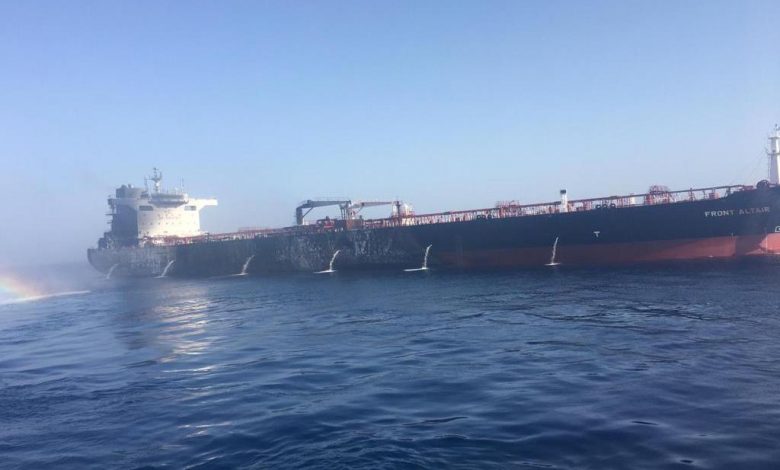US presses ahead with Hormuz naval coalition plans

Efforts by American authorities to create an international naval coalition to assist merchant ships through the Strait of Hormuz continue with the secretary of state George Pompeo meeting heads of state across the Middle East this week.
The UK and India have sent naval support to the region, joining an enlarged US military presence in Middle Eastern waters in the wake of six attacks on tankers in and around the Strait of Hormuz over the past seven weeks.
US president Donald Trump took to Twitter yesterday to demand Asian nations contribute more to the safe navigation of the strait, pointing out that the likes of Japan and China were reliant on the waterway for more than half of their oil imports.
Responding today to the tweet, Yoshihide Suga, chief cabinet secretary in Shinzo Abe’s Tokyo administration, told reporters: “We are seriously concerned about rising tensions in the Middle East. In particular, the safety of shipping in the Straits of Hormuz is a matter of life and death for our country in terms of energy security and it is extremely important for the peace and prosperity of the international community.”
The Chinese foreign ministry has yet to pass comment on Trump’s demands. Earlier this month, foreign ministry spokesperson. Geng Shuang told reporters: “We urge the US to earnestly respect China’s interests and concerns, and refrain from taking wrong moves that will undermine our interests. We will continue to safeguard the lawful and legitimate rights and interests of Chinese businesses.”
Secretary of state Pompeo has met with the heads of state of both Saudi Arabia and the United Arab Emirates (UAE) during which he discussed the idea of a naval coalition under a new program the US is promoting called Sentinel.
According to the Washington Post, Sentinel would involve providing onboard security cameras for ships transiting the Strait of Hormuz, in addition to military patrols and escorts, with partners to the US providing hardware or cash to the project,.
“Freedom of navigation is paramount,” Pompeo tweeted from the Saudi city of Jeddah.
….a dangerous journey. We don’t even need to be there in that the U.S. has just become (by far) the largest producer of Energy anywhere in the world! The U.S. request for Iran is very simple – No Nuclear Weapons and No Further Sponsoring of Terror!
— Donald J. Trump (@realDonaldTrump) June 24, 2019
